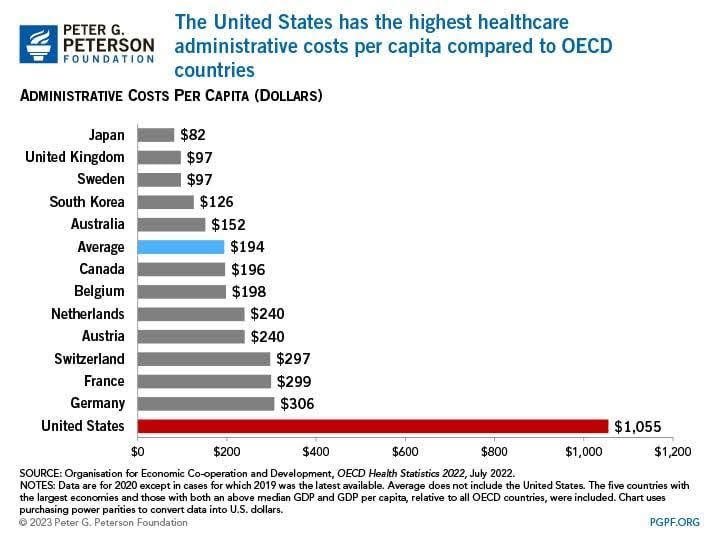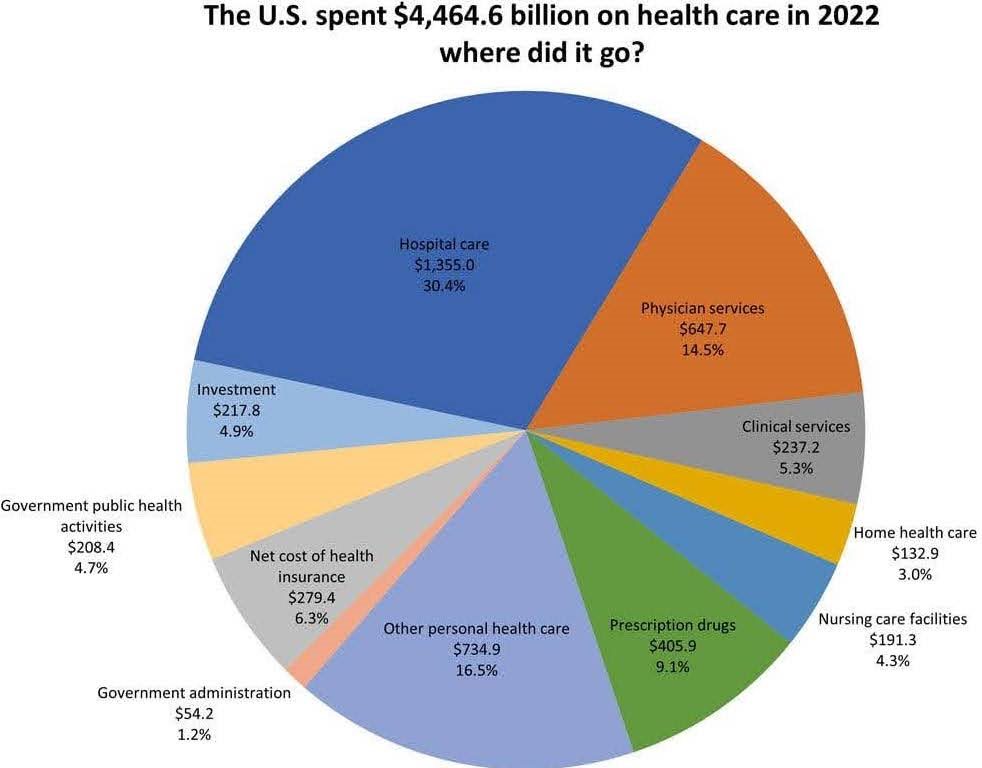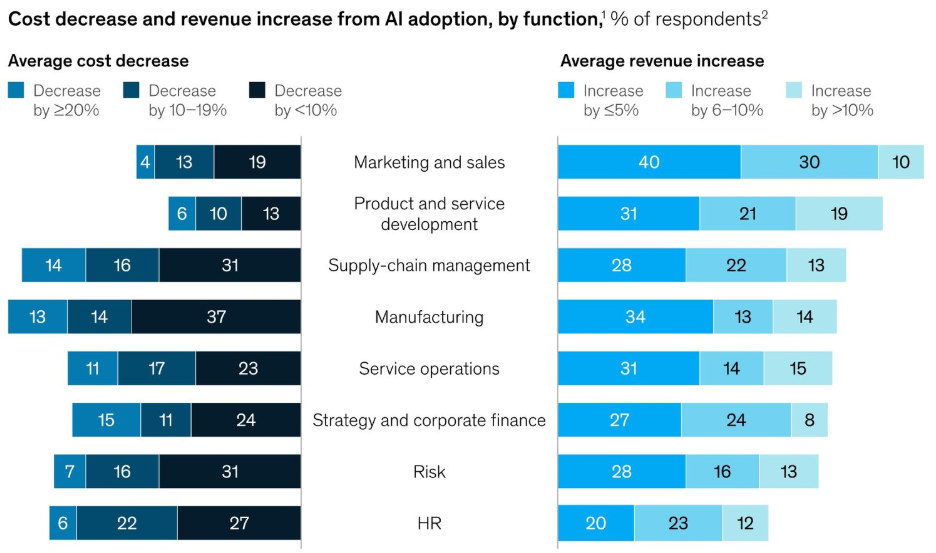American healthcare. It’s a topic that gets everyone talking, and usually not in a happy way. We all know it's expensive, but why is it so expensive, and more importantly, is there a way out? Forget the political shouting matches for a minute. Let’s look at this from a business angle, like we're trying to fix a broken company — because in many ways, that’s what our healthcare system feels like right now.
Think about any business. If costs are through the roof and customers are unhappy, you look for inefficiencies. Healthcare is no different. We're talking about a massive, complex system; frankly, it has some serious leaks.
The Price Tag Problem: More Than Just Doctor Visits
It’s easy to point fingers at hospitals or drug companies, but the truth is that the high cost of American healthcare is a mix of many things. Imagine trying to untangle a Christmas tree light string that’s been in storage for a year — messy, right? That's our healthcare system.
One big piece of the puzzle is administrative bloat. Think about it: insurance paperwork, billing codes that look like alien languages and entire departments dedicated to processing claims. A study by the Peter G. Peterson Foundation and JAMA found that administrative costs in the US healthcare system are way higher than in other developed countries, making up about 25% of total health expenditures. That’s a quarter of every dollar — just on paperwork! It’s like paying someone to shuffle papers instead of fixing the problem.

Then there's the cost of drugs. We're not just talking about the occasional pricey medication. The US has some of the highest prescription drug prices in the world. Why? There are complex reasons, but a big one is our system allows drug companies more freedom to set prices. Think about insulin, a life-saving drug that’s been around for ages. The price has skyrocketed in America, while in other countries, it’s much more affordable. It’s a stark example of how market dynamics play out in healthcare.
Let’s not forget technology. New medical tech is impressive — think of advanced imaging, robotic surgery and gene therapies. But all this innovation comes with a hefty price tag. Hospitals must invest in these technologies, train staff and pass those costs along. It’s a double-edged sword: we want the best care, but the best care is expensive.
Example: Think about a hospital investing in a cutting-edge robotic surgery system. It’s a considerable investment upfront — millions of dollars. To recoup that, they need to perform a certain number of surgeries, which will naturally be more expensive.
Fact: According to the Peterson-KFF Health System Tracker, the US spends over $4 trillion annually on healthcare, significantly more per person than any other developed nation. Despite this high spending, our health outcomes aren't always better – sometimes worse!

Related Article: 10 Top AI Certifications for Health Care Pros
Could AI Be the Scalpel to Cut Costs?
Okay, so we know the problem is big and complicated. But here’s where it gets interesting. What if we could use AI, not as some sci-fi fantasy, but as a practical tool to fix some of these broken parts?
Think of AI as a super-efficient assistant that can work 24/7, doesn’t get tired and can process mountains of data in seconds. In healthcare, this could be game-changing.
AI Can Streamline the Back Office
Remember all that paperwork? AI can automate a lot of it. Imagine AI systems handling insurance claims, scheduling appointments and managing patient records. This frees up human staff to focus on actual patient care, not pushing paper. It’s like replacing slow, manual processes with a lightning-fast digital system. This isn't just about cutting jobs; it's about shifting human effort to where it matters most.
AI for Smarter Diagnoses and Treatment
AI isn't going to replace doctors, but it can be an incredible diagnostic tool. AI algorithms can analyze medical images — X-rays, MRIs, CT scans — with incredible speed and accuracy, sometimes even spotting things human eyes might miss. Think of it like a super-powered second opinion, available instantly. This can lead to earlier diagnoses, better treatment plans and, ultimately, better patient outcomes. And healthier patients, over time, mean lower healthcare costs.
Example: AI is being used to analyze mammograms to detect breast cancer earlier. Studies have shown AI can be as good as, or even better than, radiologists in detecting subtle signs of cancer. Early detection is key for successful treatment and lower long-term costs.
AI to Personalize Medicine
We’re all different, and our bodies react differently to treatments. AI can help personalize medicine by analyzing patients' genetic information, lifestyle and medical history to predict how they’ll respond to different therapies. This means doctors can make more informed decisions about the best treatment plan for each individual, avoiding unnecessary treatments and costs. It's like tailoring a suit instead of buying off-the-rack — it fits better and works better for you.
AI in Drug Discovery
Developing new drugs is incredibly expensive and time-consuming. AI can speed up this process by analyzing vast amounts of data to identify potential drug candidates and predict their effectiveness. This can cut down the time and cost of bringing new treatments to market, potentially leading to more affordable medications in the future. It's like having a super-powered research assistant that never sleeps and can connect dots humans can't even see.
Fact: A report by McKinsey estimates that AI could potentially save the healthcare industry in the US billions of dollars annually through improved efficiency, better diagnoses, and personalized treatments.

Strategic Moves: How Healthcare Businesses Can Win With AI
For healthcare organizations, AI isn’t just a nice-to-have; it’s becoming a must-have for staying competitive. Those who figure out how to use AI effectively will be the leaders in the future.
Efficiency Is King
In any business, efficiency drives profitability. AI offers a pathway to streamline operations, reduce administrative overhead and optimize resource allocation. Hospitals and clinics that adopt AI for back-office tasks can free up staff and resources to focus on patient care and strategic growth. It's about doing more with less, a classic business principle.
Better Care, Happier Patients
AI-powered diagnostics, personalized treatment plans and remote patient monitoring can lead to better patient outcomes and a better patient experience. Happier, healthier patients are good for business. They’re more likely to be loyal, recommend your services and require less costly interventions down the line. It’s a virtuous cycle.
Innovation Engine
AI can fuel innovation in healthcare. From developing new diagnostic tools to creating personalized therapies, AI opens up new possibilities for improving care and creating new revenue streams. Organizations that invest in AI research and development will be at the forefront of the next wave of healthcare innovation. Think of it as investing in the future of medicine.
Related Article: The AI Prescription: Fixing Healthcare’s Biggest CX Gaps
Reshaping Healthcare With AI Innovation
If you're a professional in healthcare, now is the time to start asking: How can AI transform my organization? What are the first steps we can take to explore and implement AI solutions? The future of healthcare is being shaped right now, and AI is a significant force. Let's build a more affordable, efficient and patient-centered system.
The high cost of healthcare in America is a complex problem, but it's not insurmountable. AI isn't a magic wand, but it's a powerful tool with the potential to reshape the industry. Healthcare organizations can cut costs, deliver better care and drive innovation by strategically adopting AI. The future of healthcare isn't just about managing expenses; it's about building a smarter, more efficient and more patient-centric system. And AI is playing a leading role in that revolution.
Let's not just complain about healthcare costs. Let's actively shape a better future with innovative solutions like AI.
Frequently Asked Questions
Will AI replace doctors and nurses?
No, AI is meant to help them, not replace them. It's a tool to make their jobs easier and improve care, but human skills remain vital.
What about data privacy with AI in healthcare?
Privacy is super important. Strong rules and security are needed to protect patient data when using AI, ensuring compliance with regulations.
Can small clinics afford AI?
Yes, AI is becoming more accessible. Cloud services and partnerships can make it affordable for smaller practices, starting with AI for specific needs.
Is AI in healthcare fair and ethical?
Fairness is key. AI systems must be unbiased and clear. Human oversight and ethics are needed to use AI responsibly in healthcare.
When will AI cut healthcare costs?
It'll be gradual. Some AI uses, like admin tasks, will save money faster. Wider AI adoption will lead to bigger cost savings over time.
Learn how you can join our contributor community.
